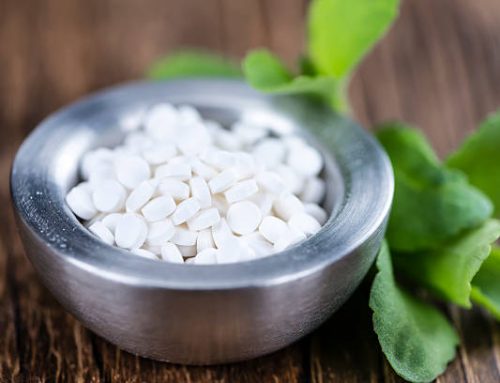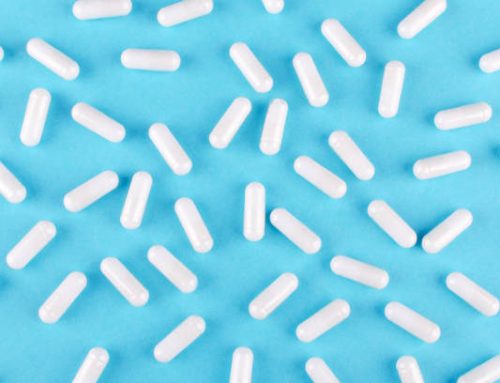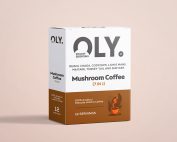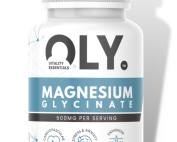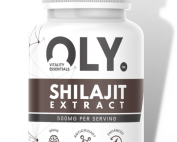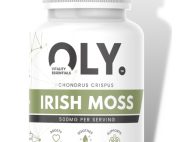There’s no denying it- sodium often gets a bad rap when it comes to our health. But what if I told you that this essential mineral is actually a vital component to our vitality? Yes, you heard it right! Sodium, when consumed in moderation, has a plethora of benefits that can keep us energized, balanced, and nourished. In this article, we’ll explore the many wonders of this often misunderstood nutrient and discover why it deserves more than just a sprinkle of appreciation! So grab a seat and get ready to salute sodium- because every bite counts towards a healthier and happier you.


1. Celebrating the Unsung Hero: The Wonders of Sodium in Our Diet
Sodium: A Mineral We All Need but Often Overlooked
Sodium is an essential mineral that is crucial for our body’s proper functioning. It helps to regulate blood pressure and fluid balance, and aids in transmitting nerve impulses and muscle contractions. Sodium is found naturally in many foods, and it is also added to processed foods to improve taste, texture, and preservation. However, sodium is often associated with negative health effects, such as hypertension, heart disease, and stroke, which have led to the misconception that it is a harmful component of our diet.
The Unsung Hero of Our Diet
Despite its negative reputation, sodium is an unsung hero in our diet that plays a vital role in maintaining our health and well-being. By consuming the right amount of sodium, we can enjoy its many wonders without compromising our health. For instance, sodium helps to regulate our body’s fluid balance, preventing dehydration and maintaining blood pressure. Sodium also aids in transmitting nerve impulses and muscle contractions, allowing us to move and react to stimuli.
The Benefits of Consuming Sodium in Moderation
- Improves Muscle Functioning: Sodium helps to transport nutrients and oxygen to the muscles, boosting their functioning and endurance.
- Boosts Brain Functioning: Sodium aids in transmitting nerve impulses, improving cognitive function and memory processing.
- Regulates Blood Pressure: Sodium helps to maintain fluid balance, preventing hypertension and other cardiovascular diseases.
- Enhances Taste: Sodium adds flavor and enhances the taste of food, making it more enjoyable to eat.
The Key to Eating Sodium in a Healthy Way
Eating too much sodium can lead to negative health effects, such as high blood pressure, stroke, and heart disease. However, that doesn’t mean we should avoid it altogether. The key to consuming sodium in a healthy way is to eat it in moderation and to choose foods that are naturally high in sodium, such as fruits, vegetables, lean proteins, and whole grains. We should also limit our intake of processed foods, which are often high in sodium, and read food labels to monitor our sodium intake.
The Bottom Line
Sodium is an essential mineral that is often overlooked in our diet. By consuming sodium in moderation and choosing healthy sources of sodium, we can enjoy its many benefits without compromising our health. Let’s celebrate the unsung hero of our diet and reap the wonders of sodium.
2. Unpacking the Power-Packed Nutrient: Sodium and Its Benefits to Our Health
When we think of sodium, the first thing that comes to our mind is salt. And we often hear that too much salt is bad for our health. But did you know that sodium is an essential nutrient that plays a vital role in our body?
Here are some benefits of sodium that you need to know:
- Regulates Fluid Balance: Sodium helps regulate the fluid balance in our cells and tissues. It helps maintain the proper cellular function, prevents dehydration and controls the blood volume.
- Supports Nerve and Muscle Function: Sodium is necessary for the proper functioning of nerves and muscles. It helps transmit signals from the brain to the body, aids in muscle contraction, and supports the cardiovascular system.
- Assists in Nutrient Absorption: Sodium enables the absorption of glucose and other essential nutrients in the small intestine. It also helps in controlling the pH levels of the digestive tract.
- Boosts Energy Levels: Sodium helps in the production of ATP (Adenosine triphosphate) which is the primary source of energy for the cells in our body. It also plays a role in balancing electrolytes that are responsible for transmitting electrical impulses in the body.
While the benefits of sodium are undeniable, it’s essential to note that too much of anything can be harmful. The recommended daily intake of sodium is 2,300 mg for adults, and additional requirements may vary based on various factors such as age, sex, and fitness levels. Excessive consumption of sodium can lead to high blood pressure, heart disease, and other health hazards.
To sum it up, sodium is a power-packed nutrient that plays a crucial role in our overall health and well-being. As with any nutrient, moderation is key. Consuming sodium in a controlled manner, along with healthy lifestyle practices, can lead to a healthier, more energetic you!
3. The Surprising Truth about Sodium: How This Much-Maligned Mineral Helps Keep Us Fit and Energetic
The Many Benefits of Sodium:
Sodium has long been a practically taboo in the world of health and nutrition. We’re told that too much of it can lead to hypertension, heart disease, and a plethora of other health problems. But what if I told you that sodium can be beneficial to our bodies too?
Here are only a few of the ways that sodium can positively impact our health:
- Regulates fluid balance in the body
- Assists in the transmission of nerve impulses
- Aids in the absorption of nutrients and glucose in the gut
- Prevents muscle cramps and weakness
As with so many things in life, it turns out that moderation is key. Consumed in the proper amounts, sodium can be a helpful component of our diets.
Sodium and Athletic Performance:
When it comes to athletic performance, sodium can play an especially important role. During intense exercise, our bodies produce sweat, which causes a loss of fluids and electrolytes–including sodium.
And while losing water during exercise is normal and healthy, losing too much sodium can be detrimental to our performance. When sodium levels become depleted, we run the risk of feeling sluggish or even becoming dehydrated.
But by consuming appropriate amounts of sodium before, during, and after exercise, we can help our bodies maintain optimal levels of electrolytes–which can translate into better performance and stamina.
In Conclusion:
It’s time to give sodium some love! As with any other mineral or nutrient, too much of it can certainly cause problems. But when consumed wisely, sodium can give our bodies the boost they need to keep us healthy, happy, and energized. Whether you’re an athlete or simply looking to improve your overall wellness, consider adding an appropriate amount of sodium to your diet–your body will thank you for it!
4. Sodium in Our Plate, Vitality in Our Life: How to Harness the Benefits of Sodium in Our Diet
Sodium is a critical nutrient that is necessary to maintain our body’s fluid balance, support our nervous system, and regulate our blood pressure. Unfortunately, many people associate sodium with negative health effects, such as salt-induced hypertension or fluid retention.
While it is essential to monitor our sodium intake, it is equally important to understand the valuable health benefits it can offer. When consumed in moderation, sodium can provide our bodies with the vitality and energy we need to lead a fulfilling life.
So how can we harness the benefits of sodium in our diet?
- Be mindful of your sodium intake: It is recommended that adults consume no more than 2,300 milligrams (mg) of sodium per day. However, if you have high blood pressure or other health conditions, your doctor may recommend consuming less.
- Incorporate natural sources of sodium: Sodium is naturally found in many foods, including vegetables, dairy products, and meats. Incorporating natural sources of sodium into your diet can help you avoid excessively processed foods or high sodium-added products.
- Become a label reader: When grocery shopping, read the nutrition labels and opt for lower-sodium options whenever possible.
- Experiment with herbs and spices: To add flavor to your meals without relying on salt, try using herbs and spices such as garlic, cumin, rosemary, or paprika.
- Stay hydrated: Drinking enough water can help flush excess sodium out of your body, keeping your fluid balance in check.
When we adopt a mindful approach to our sodium intake and focus on incorporating natural sources of sodium into our diets, we can reap the benefits this mineral provides to our bodies. By following these steps and making a conscious effort to consume sodium in moderation, we can lead healthy, vibrant lives full of vitality.
5. So-Sodium-Tive Strength: Harnessing the Nutritional Advantages of this Essential Mineral for Optimum Health
Sodium is an essential mineral that has a major role in maintaining normal body function. It helps regulate blood volume, balance electrolytes, and support nerve and muscle function. But did you know that sodium also plays a crucial role in the optimal functioning of our body’s organs and overall vitality?
In today’s world, where high-sodium diets are abundant and under-discussed, it’s important to understand the impact that sodium intake can have on your health. Too much sodium can cause a variety of health issues, such as hypertension, water retention, and an increased risk of heart disease. However, when consumed in moderation, sodium can provide a multitude of benefits to your overall health and wellness.
Did you know that sodium can help regulate the pH balance of our bodily fluids? This is essential for maintaining optimal blood and cellular health, and has numerous benefits for our skin, hair, and digestive system. In addition, consuming sodium can also improve athletic performance and help prevent muscle cramping, making it an essential nutrient for athletes and fitness enthusiasts alike.
When it comes to food choices, there are plenty of ways to incorporate sodium into your diet in a healthy and beneficial way. From natural sources like celery and spinach to mineral-rich salts and seasonings, there are plenty of options available to make sure you’re getting the right amount of sodium in your diet.
One important thing to keep in mind is to always read food labels and monitor your salt intake, as many packaged and processed foods can contain high amounts of sodium. In addition, consuming too much sodium at one time can lead to dehydration and other negative health effects, so it’s important to spread your sodium intake throughout the day.
By harnessing the nutritional advantages of this essential mineral, you can experience greater strength, vitality, and overall wellbeing. Remember, moderation is key when it comes to sodium intake, but when consumed in the right amounts, it can provide numerous benefits for your health and wellness journey. —
Thank you for joining us in our journey to appreciate the vitality that sodium brings to our lives! As we wrap up, we hope that you are inspired to continue exploring the role of this essential mineral in your diet and how it enhances overall health.
Remember, like with all things in life, moderation is key. Now armed with a deeper understanding of sodium and its benefits, we invite you to make conscious choices and savor every bite that nourishes your body and soul.
FAQ: Sodium
Below are answers to some of the most common questions and misconceptions surrounding sodium:
- Q: What is sodium?
- A: Sodium is an essential mineral that helps regulate fluid balance in the body, aids in nerve and muscle function, and supports healthy heart and kidney function.
- Q: Is sodium bad for you?
- A: No, sodium is not inherently bad for you. Rather, it is a vital nutrient that plays important roles in the body. However, excess intake of sodium can lead to health issues such as high blood pressure and cardiovascular disease.
- Q: How much sodium should I consume?
- A: The American Heart Association recommends no more than 2,300 milligrams (mg) of sodium per day, and ideally less than 1,500 mg for those with high blood pressure or at risk of developing it.
- Q: What are some natural sources of sodium?
- A: Some natural sources of sodium include vegetables such as celery, spinach, and beets, as well as dairy products, shellfish, and meat.
- Q: How can I lower my sodium intake?
- A: Here are some tips for lowering your sodium intake:
- Choose fresh or frozen fruits and vegetables instead of processed ones.
- Limit the use of salt in cooking and at the table.
- Read food labels and choose lower sodium options when possible.
- Season foods with herbs and spices instead of salt.
- Choose unsalted snacks such as nuts and popcorn over salty ones.
- A: Here are some tips for lowering your sodium intake:

